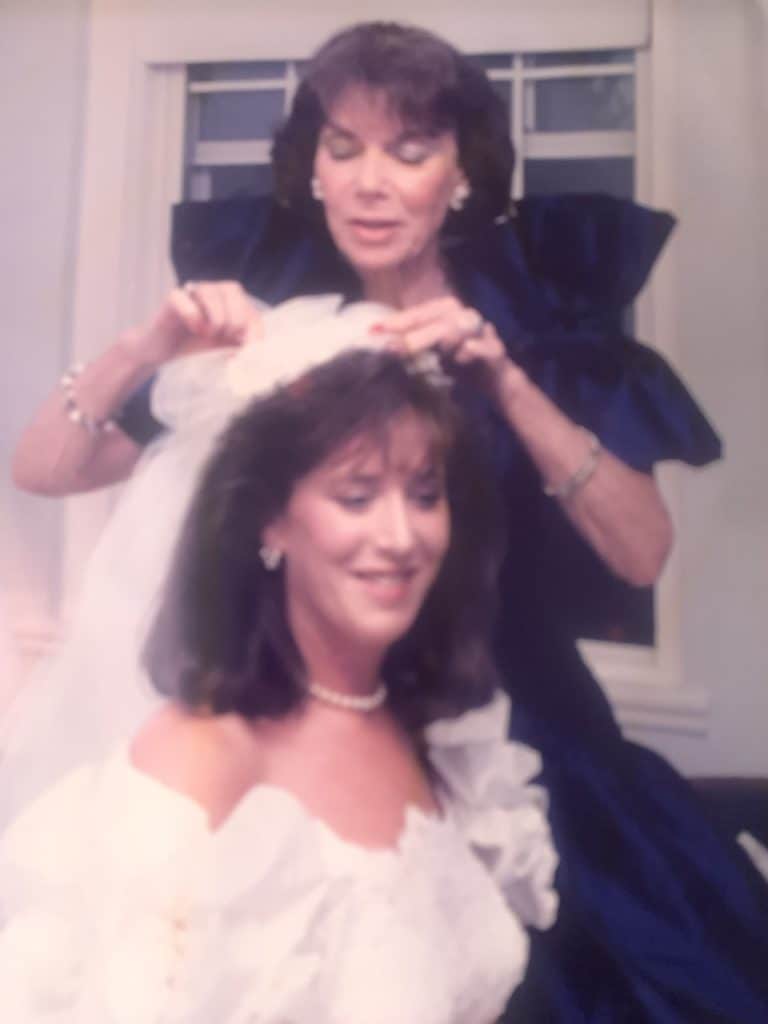
Cindy Shmerler of Pleasantville says public awareness and acceptance of Alzheimer’s disease has come a long way since her mother, Paula Shmerler, suffered with it in the 2000s. Now a board member with the Alzheimer’s Association Hudson Valley Chapter, Cindy Shmerler said the disease was rarely discussed when her family was living with it.
“I learned so much by having gone through this, and especially having gone through it when it was a quiet, subtle epidemic that nobody talked about. We suffered in silence a lot. I hope people aren’t suffering in silence now — and if they are, they shouldn’t be, because the only way we’re going to solve this crisis is by more people talking about it. No one prepared us for what we were going to go through.”
Cindy Shmerler describes her mother as a talented and accomplished woman.
“She was the first female graduate in interior design from the architecture school at Washington University in St. Louis, and she flew on some of the first prop planes. She was a champion golfer, she was a bridge player, she knitted. She did all those things that they tell you ward off Alzheimer’s,” she said. “When we looked back, we realized that my mother’s mother and my mother’s grandmother both had Alzheimer’s, too. My grandmother was a society woman in New York, and nobody talked about it. Everyone said she was senile, and no one knew what that meant.”
She said things have changed dramatically since then.
“People want it out there, they want people to know. First of all, it explains a lot, so you don’t have to hide somebody in the back closet of your house. We used to take my mother out all the time,” she said. “And, yes, people would look. It’s very easy to spot someone with Alzheimer’s if you’ve been around it before. You see it in everybody’s face.”
Shmerler said her family’s denial was shattered when her mother fell down the stairs and had to be hospitalized.
“She was standing at the top of the stairs and didn’t know where to go, took a step and fell down the stairs, shattering her femur. At White Plains Hospital, they said she was sundowning,” she recalled. Sundowning is what happens when someone has dementia and becomes restless, agitated or confused as the evening approaches.
“It was probably five years from the time we accepted it. We knew what was happening. You know when you don’t want to admit something, and you don’t want to deal with it.”
And her mother also went out of her way to seem unchanged as the dementia progressed.
“Somebody would come up to the table, and she would say “How are you?” and we would all chuckle because we knew she had no idea who they were.”
She said it was hard not knowing how much her mother knew.
“What she did or didn’t know, I think that gnawed at me in the most profound way. It just killed me that I couldn’t get inside her brain to find out,” she said.
While for many families, the disease advances to a point when they can no longer care for their loved one and have to move them to a facility, the Shmerlers never had to make this choice. The family was assisted by professional caregivers so she could remain at home.
“She was at home until the day she died. It was rough on my father and rough on all of us. I only saw my father get upset once, when he said, ‘What do you mean, why are you asking me that again?’ I said to him, ‘She doesn’t want to be like this. It’s not a choice. That’s when we realized how precarious the situation was.’ ”
Eventually, her mother could no longer recognize her or speak.
“My mother hadn’t spoken in probably a year, and certainly didn’t know who I was. She probably realized I was someone she loved or someone she liked, because I was there constantly. She would play cards by herself. She would sit and shuffle the cards all day long. When she died, we found the cards scattered under the chair.”
“Towards the end, she looked up and said, ‘It wasn’t supposed to be like this.’ That was a lot of words for her to use when she hadn’t spoken,” she recalled. “I have not a single regret knowing that I was there for my mother and my father. We did everything in our power.”
Now she said she notices more openness about Alzheimer’s in the younger generation.
“They’re more willing to talk about it because they don’t fear. They’re more hopeful,” she said. “My mother did all the right things. She exercised, she ate right, she did the New York Times crossword in pen. In the end, we do what we can, and we hope that we leave a legacy for the next generation. I’m not a scientist; all I can do is help raise some of the funds that can help.”
The Westchester Walk to End Alzheimer’s will be held at Westchester Community College in Valhalla on Sunday, Oct. 2. Visit WestchesterWalk.org to register.
To learn more about the programs and services offered locally, visit alz.org/hudsonvalley.





